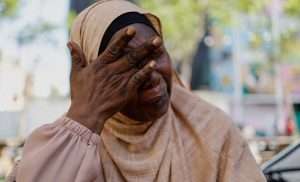Algeria: War on dissent as researcher and journalist jailed

Algeria has cracked down on speech critical of the country’s power as Raouf Farrah and Mustapha Bendjama were sentence to jail.
Farrah, an Algerian-Canadian researcher, and Mr. Bendjama, an Algerian journalist, were sentenced to two years imprisonment on August 29 in a trial that took place in the North African country’s city of Constantine, according to Al Jazeera, August 29.
The pair were sentenced on charges of publishing sensitive state information and the former has also been convicted of receiving funds from foreign powers for the purposes of undermining state security.
Sebti Farrah (Raouf’s father) received a one-year suspended sentence on similar charges to the younger Farrah, 36. The 67-year-old has already been released on bail as his health was deteriorating before and during his time behind bars.
READ: Canadian anti-crime researcher will go on trial in Algeria
The father and son were arrested earlier this year, in February, whilst visiting family in Algeria.
Raouf Farrah was born in Algeria before moving to Canada at the age of 18. Farrah’s father was based in Montreal before the duo’s arrest.
For many observers of the case, the arrests are a part of crackdown on dissenting speech. Many activists and ordinary citizens have already been threatened with legal sanctions. Algerian activist Amira Bouraoui was handed a two-year sentence, which she appealed, for “insults” directed at Algerian President, Abdelmadjid Tebboune as well as “offending Islam”. The activist played a key role in the country’s anti-government protests (often referred to as the Hirak) from 2019 to 2021.
She fled the country, instead opting to go to France whilst her sentence was being appealed.
Back in 2021, it is believed that around 800 people were arrested for taking part in anti-government protests in the country’s capital city, Algiers.
Rights organisations have condemned the arrests of Farrah and Bendjama.
Eric Goldstein, deputy Middle East and North Africa director at Human Rights Watch, stated, “There is no doubt that the charges against Farrah are political.”
Amnesty International, a global non-governmental organisation that focuses on human rights, released statistics in June 2023, which concluded that between 250 and 300 Algerians are currently in prison on charges relating to freedom of expression.
Algeria has seemingly followed neighbouring Tunisia and Morocco in the clamping down of speech critical of the President and government officials.
READ: Morocco rights group says govt cracking down on internet users
In Morocco, investigative journalist, Omar Radi was arrested and charged in July 2020. Radi has previously written about corruption in the Maghreb country.
Morocco has also cracked down on internet users over the past two years for speech relating to criticism of the government, Islam and the monarchy.
A court in Casablanca sentenced an internet user to five years in jail for a critique of King Mohammed VI’s stance on Israel on his Facebook page.
READ: Tunisia: Saied turns the screws on those who criticise him online
On August 23, Tunisia’s Ministries of Justice, Interior and Technology noted that measures had been put in place to reveal the identity of internet users who criticise government officials, including the sharing of posts criticising government officials and President Kais Saied.
In Tunisia, those who have been found to use social media sites to publish and promote false information which “destabilises the country” could face a prison sentence of up to five years as well as a fine of 50,000 Tunisian Dinars ( approximately 14,962 Euros).
Al JAZEERA
Want to chase the pulse of North Africa?
Subscribe to receive our FREE weekly PDF magazine














